Informationen zur Zeitschrift
Startseite » Programm » IJAR 3-2017 | Free Contributions
IJAR 3-2017 | Free Contributions
Erscheinungsdatum : 15.12.2017
0,00 € - 29,00 €
Inhalt
IJAR – International Journal of Action Research
3-2017: Free Contributions
John Andersen / Annette Bilfeldt: Transforming welfare institutions through social innovation and action research in Denmark
Satu Kalliola / Jukka Niemelä, Ossi Eskelinen: How to reconcile work and university studies – An action research case from Finland
Helge Svare / Eugenia Vathakou: Field-configuring events and action research: A case study from Sparta
Erika Natacha Fernandes de Andrade / Marcus Vinicius da Cunha: Action research with John Dewey’s poetic and rhetoric pedagogy
Rodney Beaulieu / Hyun Gu Kang / Shoko Hino: An action research approach to introduce Dalcroze Eurhythmics Method in a community of older adults as a promising strategy for fall prevention, injury recovery and socialization
Download of Table of Contents / Inhaltsverzeichnis herunterladen
Download of single articles (partly in Open Access / partly fee-based): ijar.budrich-journals.com
You can register here for the IJAR alert.
Einzelbeiträge zum Download (teils Open Access / teils kostenpflichtig): ijar.budrich-journals.com
Sie können sich hier für den IJAR-Alert anmelden.
Zusätzliche Information
| Verlag | |
|---|---|
| ISSN | 1861-1303 |
| eISSN | 1861-9916 |
| Jahrgang | 13. Jahrgang 2017 |
| Ausgabe | 3 |
| Erscheinungsdatum | 15.12.2017 |
| Umfang | 101 |
| Sprache | Englisch |
| Format | 17 x 24 cm |
| DOI | |
| Homepage |
Autor*innen
Schlagwörteraction research, Adult students, Art, community, democracy, Denmark, education, Elder care, Empowerment evaluation, Eurhythmics, Exercise, Fall prevention, Finland, Greece, Health, Innovation, John Dewey, Kinesiology, Music, Public libraries, Reconciling work and studies, Regional development, Rhetoric, Rhetoric pedagogy, Social innovation, Sparta, university, work, Émile Jaques Dalcroze
Abstracts
Transforming welfare institutions through social innovation and action research in Denmark (John Andersen, Annette Bilfeldt)
The article will present how action research may contribute to social innovation and empowerment in public welfare and cultural institutions (nursing homes and libraries) in a manner that supports the interests of marginalised citizens and local communities, and creates opportunities for positive change. First, we introduce the concepts of empowerment, action research and social innovation along with the roots of these concepts in critical social theory. Secondly, two case studies are presented to analyse two different methodological variants of action research in two different contexts. The first case is about action research in nursing homes, where the objective was to improve elder care through more autonomy and better quality of life for residents and employees. In this project (inspired by critical utopian action research), so called ‘future workshops’ were applied to create “free space” for reflection and creation of concrete suggestions of social innovation in elder care. The second case is about the transformation of a public library into a community centre. In this case, the aim was to break down barriers between citizens and public institutions in a deprived, multicultural urban area and thereby promote local community empowerment. In this project, ‘empowerment evaluation’ was used as an action research method. In the final part we compare the two approaches (utopian action research and empowerment facilitation), and discuss the danger of falling into the trap of localism, where successful social innovations: instead of being up-scaled and widely distributed, end up as oneoffs or simply die out at the very local level. Keywords: action research, social innovation, public libraries, elder care, empowerment evaluation
» Download Single Contribution Free of Charge (Budrich Journals) / Einzelbeitrag kostenlos herunterladen (Budrich Journals)
How to reconcile work and university studies – An action research case from Finland (Satu Kalliola, Jukka Niemelä, Ossi Eskelinen)
University traditions are confronted by continuous global competition and are challenged to provide a larger and faster highly educated labour force. On the other hand, many adult students work along their studies which prolong earning their degrees. The study explores the perspectives of employers and students, teachers and student advisors coming from two University Consortia, on the need to reconcile work and studies, and on the potential practices to do that. The research setting is that of Action Research applying Democratic Dialogue. The study examines the dialogues of all participant groups, action plans made, practical outcomes after five years of a dialogue based intervention and the learnings about the method used. The study concludes that instead of study-friendly practices at the workplaces, the universities are adopting work-friendly practices, including e-learning, to support their students. The dialogue based method proved to be malleable enough to capture the diverse ideas of participants. Keywords: Democratic Dialogue, action research cycle, adult students, reconciling work and studies
» Download Single Contribution Free of Charge (Budrich Journals) / Einzelbeitrag kostenlos herunterladen (Budrich Journals)
Field-configuring events and action research: A case study from Sparta (Helge Svare, Eugenia Vathakou)
FCE theory was developed within neo-institutional theory, the aim of which is to understand how institutions and organisations function and change. In this paper, we match this theory with another theoretical tradition: that of action research. We use this theoretical framework to analyse and reflect upon the SpARTathlo event in the Greek town of Sparta. We demonstrate how the framework enables both a more multifaceted and more comprehensive understanding of the event, and how this has practical implications for the improvement of such events. Keywords: field-configuring events, action research, innovation, regional development
» Download Single Contribution Free of Charge (Budrich Journals) / Einzelbeitrag kostenlos herunterladen (Budrich Journals)
Action research with John Dewey’s poetic and rhetoric pedagogy (Erika Natacha Fernandes de Andrade, Marcus Vinicius da Cunha)
In this article, we describe action research to test the hypothesis that the comprehension of John Dewey’s philosophical and educational conceptions can help teachers to construct significant possibilities in teaching artistic languages and forming creative subjects. We consider that Dewey was a precursor of action research as a method for the constitution of the knowledge in the humanities, especially in education, and that the core of his ideas lies in an aesthetic theory. For this reason, his pedagogy can be called poetics, or rhetoric. So, we developed action research with a group of university students from a teacher training course, taking music as an object of reflection and articulation of practical activities. The theme of this experience was the Baião, Brazilian musical genre, chosen as an expressive way to produce aesthetic, rhetorical and poetic experiences. The results emphasise the potential of musical language to promote the association between aesthetic concepts and the Deweyan educational propositions, in order to provide aesthetic appreciation experiences and to foster the constitution of individuals aware of their potential. Keywords: John Dewey, art, education, music, rhetoric
» Download Single Contribution Free of Charge (Budrich Journals) / Einzelbeitrag kostenlos herunterladen (Budrich Journals)
An action research approach to introduce Dalcroze Eurhythmics Method in a community of older adults as a promising strategy for fall prevention, injury recovery and socialization (Rodney Beaulieu, Hyun Gu Kang, Shoko Hino)
A community health programme was piloted at San Marcos Senior Activity Center in California over a two-year period, patterned from the Jaques-Dalcroze Eurhythmics method known to reduce fall rates by half, and improve cognition and mood in older adults. The programme involved live improvised music to cue synchronised and improvised body movements, memory and attention tasks, and cognitive-motor games, with collaborative support from older adult participants and kinesiology students. This article presents the older adults’ perceptions on the strengths and challenges of the programme, and their recommendations for making improvements in the next action research phase. (Feedback from the kinesiology students appears in a follow-up article.) Focus group interviews revealed that the strengths of the programme included: 1) social and physical pleasure; 2) improved health, including balance, gait, recovery after an injury, confidence in mobility, metamemory skills, and a greater understanding of health promotion and fall prevention strategies; and 3) the collaborative nature of individualized support. Challenges during the first year included transportation, scheduling, and differences in skill levels among participants, however, these were resolved by the second year. Recommendations for improving the programme in the next action research phase include: continuing the current practice, attracting more participants who could benefit from the programme and retaining them, and securing funds to offset costs. Keywords: Community-based programme, Jaques-Dalcroze Eurhythmics, fall prevention, older adults, kinesiology, health, exercise
» Download Single Contribution Free of Charge (Budrich Journals) / Einzelbeitrag kostenlos herunterladen (Budrich Journals)
Inhalt
Inhalt
IJAR – International Journal of Action Research
3-2017: Free Contributions
John Andersen / Annette Bilfeldt: Transforming welfare institutions through social innovation and action research in Denmark
Satu Kalliola / Jukka Niemelä, Ossi Eskelinen: How to reconcile work and university studies – An action research case from Finland
Helge Svare / Eugenia Vathakou: Field-configuring events and action research: A case study from Sparta
Erika Natacha Fernandes de Andrade / Marcus Vinicius da Cunha: Action research with John Dewey’s poetic and rhetoric pedagogy
Rodney Beaulieu / Hyun Gu Kang / Shoko Hino: An action research approach to introduce Dalcroze Eurhythmics Method in a community of older adults as a promising strategy for fall prevention, injury recovery and socialization
Download of Table of Contents / Inhaltsverzeichnis herunterladen
Download of single articles (partly in Open Access / partly fee-based): ijar.budrich-journals.com
You can register here for the IJAR alert.
Einzelbeiträge zum Download (teils Open Access / teils kostenpflichtig): ijar.budrich-journals.com
Sie können sich hier für den IJAR-Alert anmelden.
Bibliografie
Zusätzliche Information
| Verlag | |
|---|---|
| ISSN | 1861-1303 |
| eISSN | 1861-9916 |
| Jahrgang | 13. Jahrgang 2017 |
| Ausgabe | 3 |
| Erscheinungsdatum | 15.12.2017 |
| Umfang | 101 |
| Sprache | Englisch |
| Format | 17 x 24 cm |
| DOI | |
| Homepage |
Produktsicherheit
Bewertungen (0)
Bewertungen
Es gibt noch keine Bewertungen.
Autor*innen
Autor*innen
Schlagwörter
Schlagwörteraction research, Adult students, Art, community, democracy, Denmark, education, Elder care, Empowerment evaluation, Eurhythmics, Exercise, Fall prevention, Finland, Greece, Health, Innovation, John Dewey, Kinesiology, Music, Public libraries, Reconciling work and studies, Regional development, Rhetoric, Rhetoric pedagogy, Social innovation, Sparta, university, work, Émile Jaques Dalcroze
Abstracts
Abstracts
Transforming welfare institutions through social innovation and action research in Denmark (John Andersen, Annette Bilfeldt)
The article will present how action research may contribute to social innovation and empowerment in public welfare and cultural institutions (nursing homes and libraries) in a manner that supports the interests of marginalised citizens and local communities, and creates opportunities for positive change. First, we introduce the concepts of empowerment, action research and social innovation along with the roots of these concepts in critical social theory. Secondly, two case studies are presented to analyse two different methodological variants of action research in two different contexts. The first case is about action research in nursing homes, where the objective was to improve elder care through more autonomy and better quality of life for residents and employees. In this project (inspired by critical utopian action research), so called ‘future workshops’ were applied to create “free space” for reflection and creation of concrete suggestions of social innovation in elder care. The second case is about the transformation of a public library into a community centre. In this case, the aim was to break down barriers between citizens and public institutions in a deprived, multicultural urban area and thereby promote local community empowerment. In this project, ‘empowerment evaluation’ was used as an action research method. In the final part we compare the two approaches (utopian action research and empowerment facilitation), and discuss the danger of falling into the trap of localism, where successful social innovations: instead of being up-scaled and widely distributed, end up as oneoffs or simply die out at the very local level. Keywords: action research, social innovation, public libraries, elder care, empowerment evaluation
» Download Single Contribution Free of Charge (Budrich Journals) / Einzelbeitrag kostenlos herunterladen (Budrich Journals)
How to reconcile work and university studies – An action research case from Finland (Satu Kalliola, Jukka Niemelä, Ossi Eskelinen)
University traditions are confronted by continuous global competition and are challenged to provide a larger and faster highly educated labour force. On the other hand, many adult students work along their studies which prolong earning their degrees. The study explores the perspectives of employers and students, teachers and student advisors coming from two University Consortia, on the need to reconcile work and studies, and on the potential practices to do that. The research setting is that of Action Research applying Democratic Dialogue. The study examines the dialogues of all participant groups, action plans made, practical outcomes after five years of a dialogue based intervention and the learnings about the method used. The study concludes that instead of study-friendly practices at the workplaces, the universities are adopting work-friendly practices, including e-learning, to support their students. The dialogue based method proved to be malleable enough to capture the diverse ideas of participants. Keywords: Democratic Dialogue, action research cycle, adult students, reconciling work and studies
» Download Single Contribution Free of Charge (Budrich Journals) / Einzelbeitrag kostenlos herunterladen (Budrich Journals)
Field-configuring events and action research: A case study from Sparta (Helge Svare, Eugenia Vathakou)
FCE theory was developed within neo-institutional theory, the aim of which is to understand how institutions and organisations function and change. In this paper, we match this theory with another theoretical tradition: that of action research. We use this theoretical framework to analyse and reflect upon the SpARTathlo event in the Greek town of Sparta. We demonstrate how the framework enables both a more multifaceted and more comprehensive understanding of the event, and how this has practical implications for the improvement of such events. Keywords: field-configuring events, action research, innovation, regional development
» Download Single Contribution Free of Charge (Budrich Journals) / Einzelbeitrag kostenlos herunterladen (Budrich Journals)
Action research with John Dewey’s poetic and rhetoric pedagogy (Erika Natacha Fernandes de Andrade, Marcus Vinicius da Cunha)
In this article, we describe action research to test the hypothesis that the comprehension of John Dewey’s philosophical and educational conceptions can help teachers to construct significant possibilities in teaching artistic languages and forming creative subjects. We consider that Dewey was a precursor of action research as a method for the constitution of the knowledge in the humanities, especially in education, and that the core of his ideas lies in an aesthetic theory. For this reason, his pedagogy can be called poetics, or rhetoric. So, we developed action research with a group of university students from a teacher training course, taking music as an object of reflection and articulation of practical activities. The theme of this experience was the Baião, Brazilian musical genre, chosen as an expressive way to produce aesthetic, rhetorical and poetic experiences. The results emphasise the potential of musical language to promote the association between aesthetic concepts and the Deweyan educational propositions, in order to provide aesthetic appreciation experiences and to foster the constitution of individuals aware of their potential. Keywords: John Dewey, art, education, music, rhetoric
» Download Single Contribution Free of Charge (Budrich Journals) / Einzelbeitrag kostenlos herunterladen (Budrich Journals)
An action research approach to introduce Dalcroze Eurhythmics Method in a community of older adults as a promising strategy for fall prevention, injury recovery and socialization (Rodney Beaulieu, Hyun Gu Kang, Shoko Hino)
A community health programme was piloted at San Marcos Senior Activity Center in California over a two-year period, patterned from the Jaques-Dalcroze Eurhythmics method known to reduce fall rates by half, and improve cognition and mood in older adults. The programme involved live improvised music to cue synchronised and improvised body movements, memory and attention tasks, and cognitive-motor games, with collaborative support from older adult participants and kinesiology students. This article presents the older adults’ perceptions on the strengths and challenges of the programme, and their recommendations for making improvements in the next action research phase. (Feedback from the kinesiology students appears in a follow-up article.) Focus group interviews revealed that the strengths of the programme included: 1) social and physical pleasure; 2) improved health, including balance, gait, recovery after an injury, confidence in mobility, metamemory skills, and a greater understanding of health promotion and fall prevention strategies; and 3) the collaborative nature of individualized support. Challenges during the first year included transportation, scheduling, and differences in skill levels among participants, however, these were resolved by the second year. Recommendations for improving the programme in the next action research phase include: continuing the current practice, attracting more participants who could benefit from the programme and retaining them, and securing funds to offset costs. Keywords: Community-based programme, Jaques-Dalcroze Eurhythmics, fall prevention, older adults, kinesiology, health, exercise
» Download Single Contribution Free of Charge (Budrich Journals) / Einzelbeitrag kostenlos herunterladen (Budrich Journals)


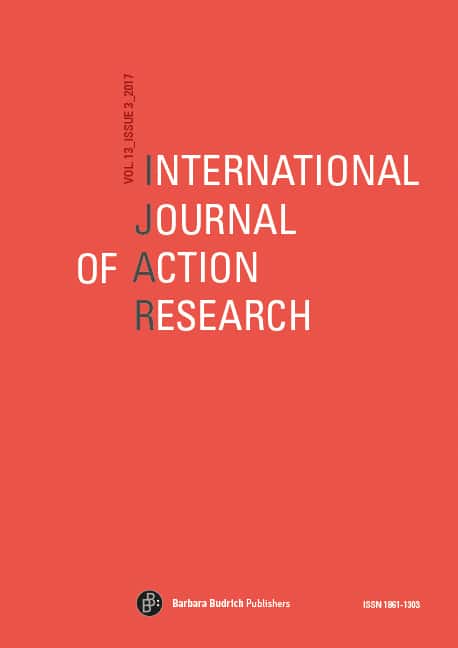

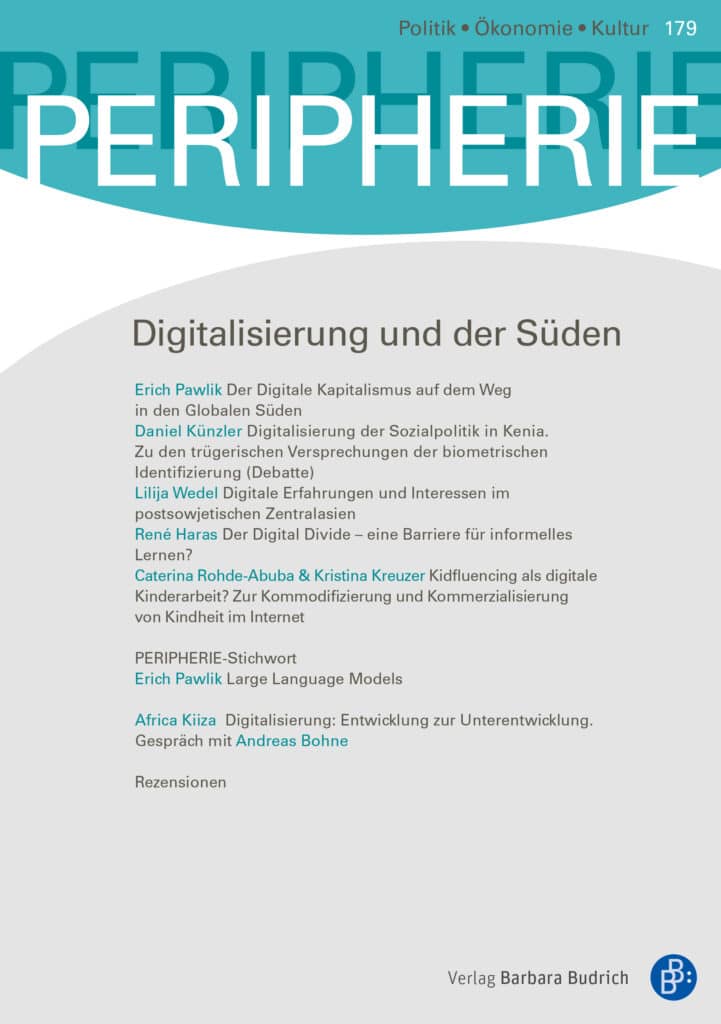
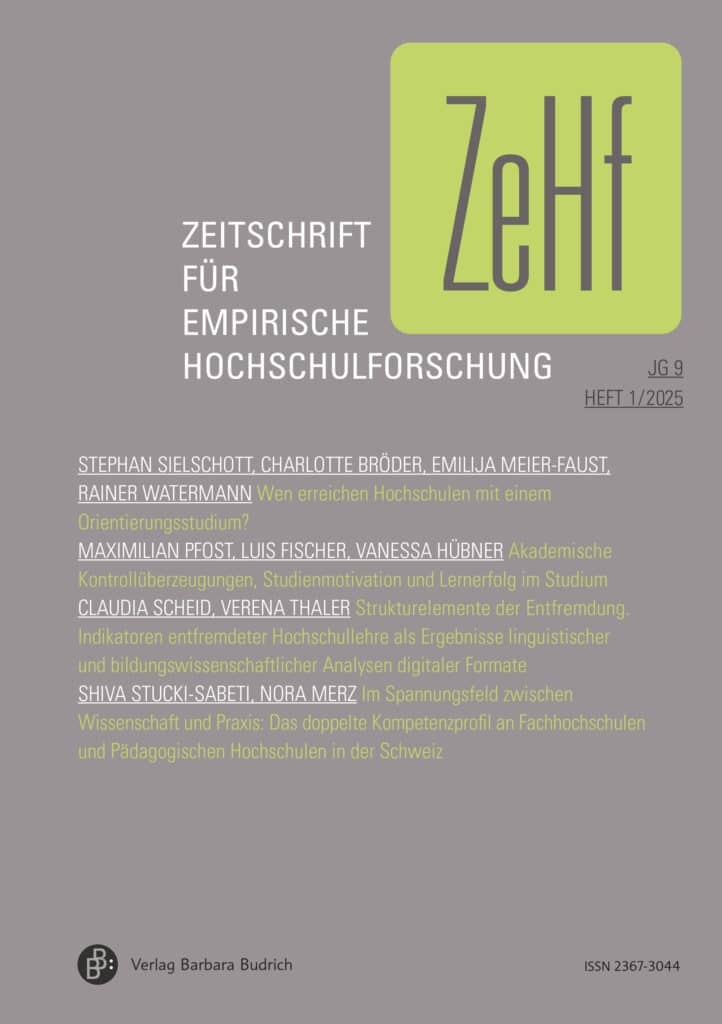
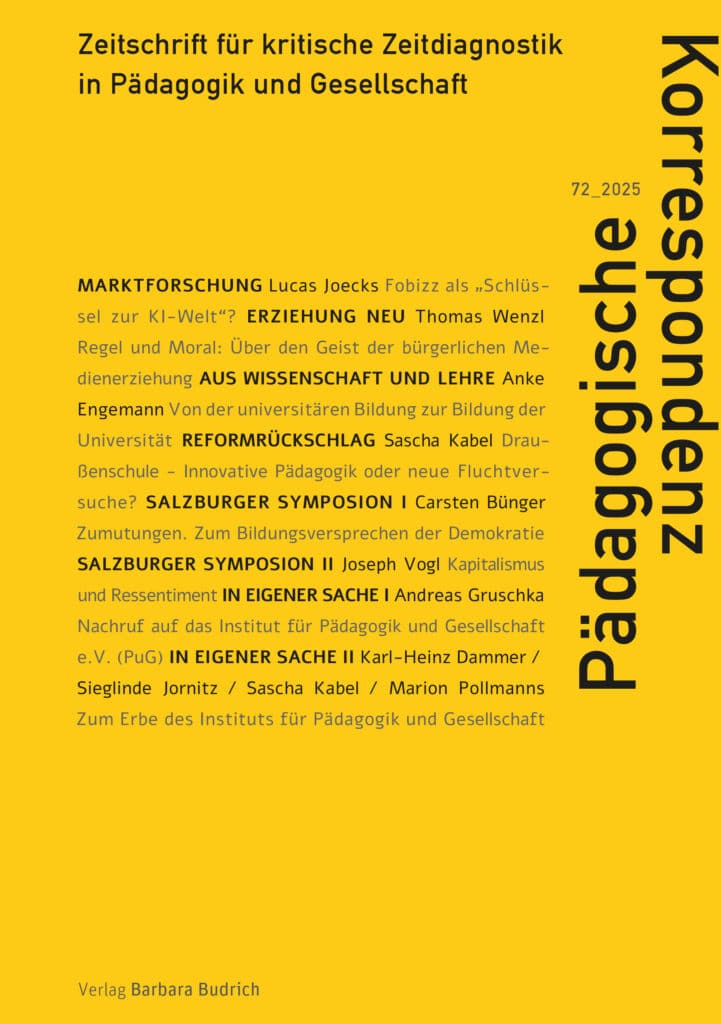
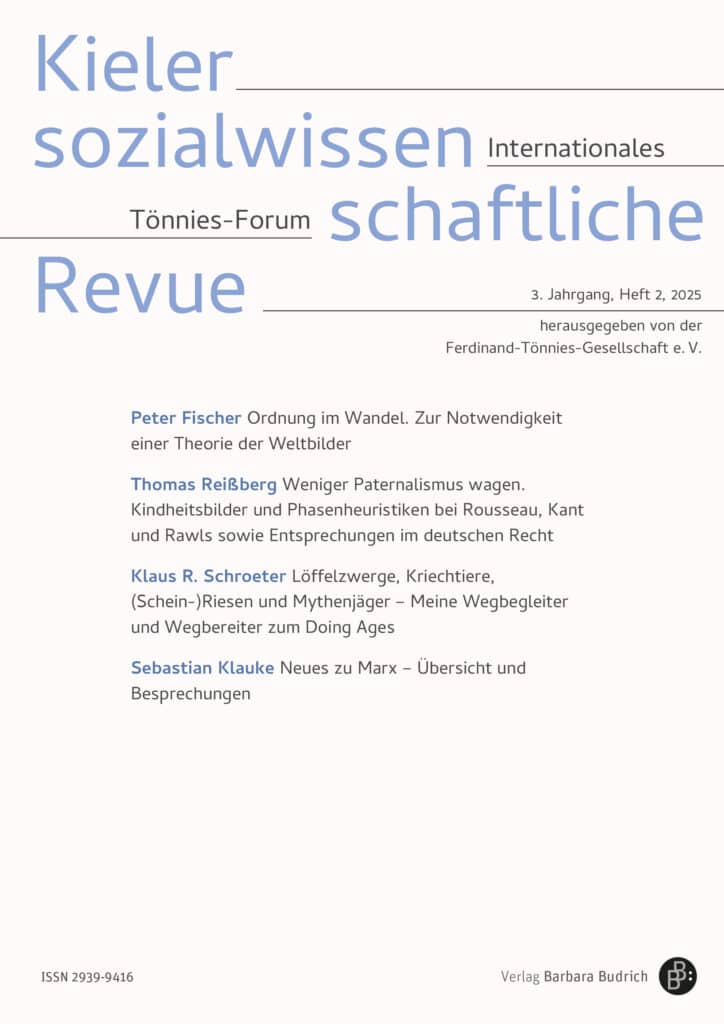
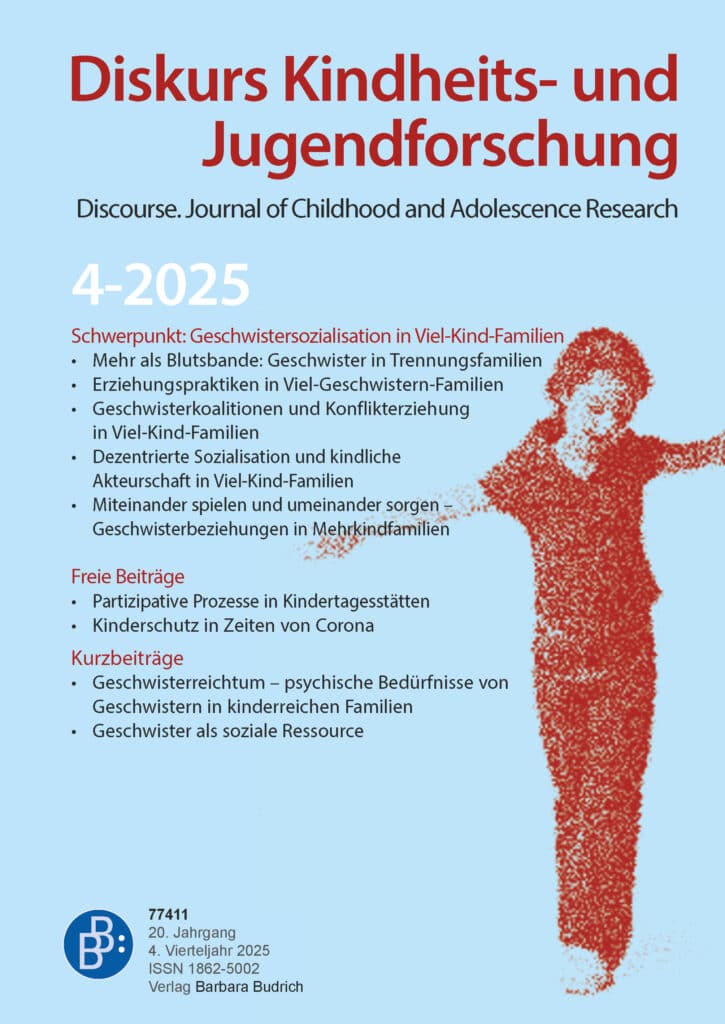

Bewertungen
Es gibt noch keine Bewertungen.